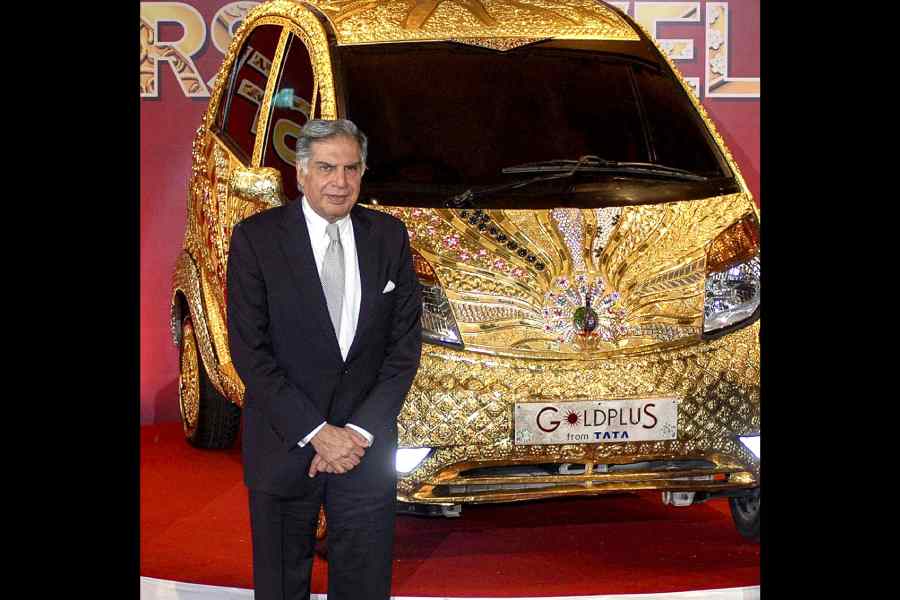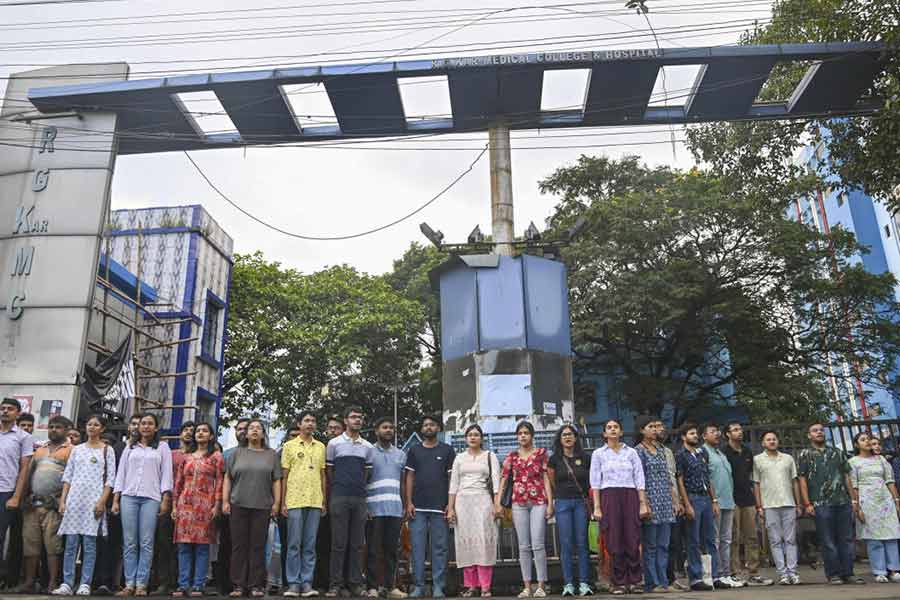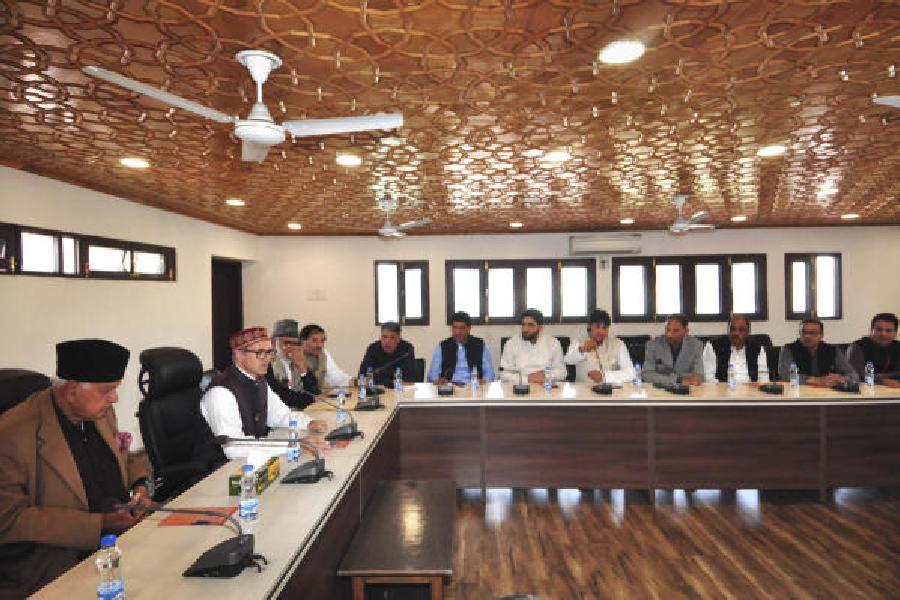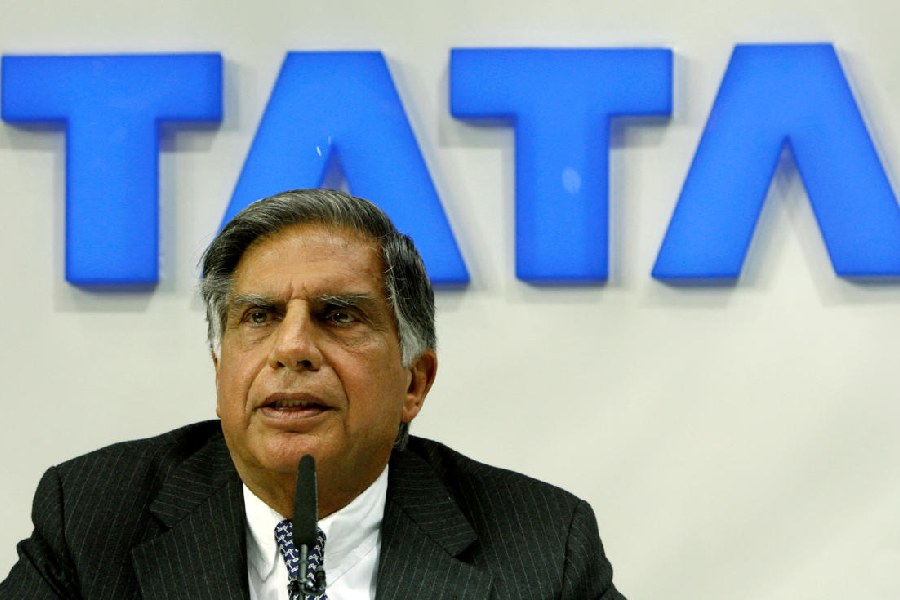“If Ratan Tata can’t, then who can?”
The whispers among corporate honchos in India Inc’s boardrooms have yet to die down 16 years after the Tata Nano project’s fateful exit from Bengal, which marred perceptions about Bengal as an attractive investment destination.
The then Left Front government led by Buddhadeb Bhattacharjee, who died two months ago, had tried to recover from the low of October 2008 but without much success.
After she became chief minister in 2011, Mamata Banerjee valiantly tried to drum up investor interest in Bengal, with patchy results.
Ratan Tata has always been seen as a towering industrialist. When he ran into trouble in Bengal, getting caught in a political crossfire, many saw it as a red flag and became wary of bringing in fresh investment to the state.
“The state’s image was battered when Tata pulled out of Singur, shaking the confidence of investors even as they weighed multiple competing offers to put in money for their next project. Despite Mamata’s best efforts, the stigma attached to Bengal has not been erased,” said a former executive at an industry chamber who had seen the Singur events unfold from close.
Hopes around the Nano project, which initially created a buzz in Bengal, fizzled out very quickly.
Tata was drawn into a war of words with Mamata who, as the leader of the Opposition in the state, spearheaded the protest against the land acquisition in Singur where the small-car plant was to come up.
In a fit of rage, Tata pulled out of Bengal and found a new house for his project in Sanand, Gujarat. After an initial burst of sales, the Nano failed to flourish. But it brought Tata close to Narendra Modi, the then chief minister of Gujarat who had facilitated the project’s relocation.
Sanand, a small town not far from Ahmedabad, soon turned into an industrial hotspot. It became a new automobile hub with Tata Motors as the anchor investor. The plant may not have rolled out many Nanos, but it became a key passenger car factory for the company and now an EV factory.
Later, American automobile giant Ford decided to set up a plant, followed by Suzuki and Hero Motocorp. A number of auto ancillary companies set up plants there too. But Sanand grew out of being just an auto hub with many FMCG companies, such as Nestle and Coca Cola, also setting up base there.
In 2023, reports said that Micron, one of the world’s top semiconductor companies, would soon set up a manufacturing base in Sanand.
Cut to Singur, where the 997-acre plot, about 40km from Calcutta, that was supposed to house the Nano project remains mostly barren with the concrete foundation for the stillborn car factory having virtually left the land uncultivable.
After Tata’s exit, a 2016 Supreme Court verdict directed the return of the land to its original owners.
After Mamata rode her land agitation to power in 2011, the first decision her cabinet took was to take the land back from the Tatas and return it to the original owners.
Since then, her government has held several investor summits to woo industry, but with little to show on the ground despite grand announcements.
The seventh edition of the Bengal Global Business Summit will be held next February.
While walking away in a huff, Ratan Tata had said he would never return. Over the years, some of that hostility cooled. But a chairman of Tata Sons has never attended any of the investment jamborees.
Ratan Tata and Mamata never crossed paths since the Nano exit of October 2008.
The Tata Group’s footprints in Bengal --- especially those of software major TCS and hospitality giant IHCL --- have grown over time but the group has not considered bringing any new business to the state.
After Tata’s death was officially announced minutes before midnight on Wednesday, Mamata was among the first to pay her respects on social media.
“Saddened by the demise of Ratan Tata, Chairman Emeritus of Tata Sons. The former Chairman of Tata Group had been a foremost leader of Indian industries and a public-spirited philanthropist. His demise will be an irreparable loss for Indian business world and society. My condolences to all his family members and colleagues,” she posted on X.











